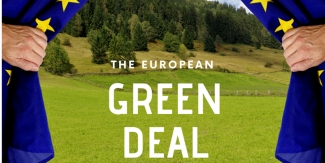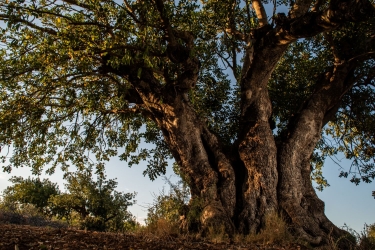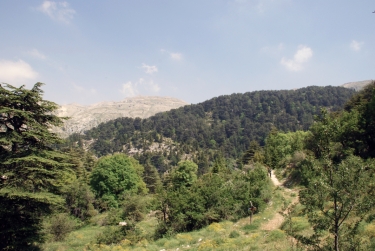Green Deal needs forest bioeconomy

The European Green Deal proposal should be updated to put more focus on the forest bioeconomy and the diverse possibilities it offers, according to participants at our very first ThinkForest webinar, held on 20 May.
An overwhelming 88% or 125 of those participants who took part in our polling agreed that the forest bioeconomy is an important missing link in the Green Deal. Speakers and panellists agreed that the EU Green Deal is welcome and necessary, but it needs updating to be even stronger, especially in the light of the need of recovery from COVID-19 caused economic slump.
COVID-19 is providing the missing urgency to the Green Deal, and an opportunity to learn valuable lessons, pointed out Janez Potocnik, ThinkForest President. Better management of natural resources is vital for strengthening our preparedness and resilience, as well as competitiveness.
The question of resources was explored by Professor Gert-Jan Nabuurs, who explained the benefits of Climate Smart Forestry, and how it is key to understanding the potential trade-offs and synergies between mitigation, adaptation, bioeconomy and biodiversity. With reduced use of fossil fuels, we will need to invest in renewable resources. Climate Smart Forestry can mitigate up to 20% of the (current) EU emissions.
Professor Jürgen Bauhus looked at the complex issue of forest biodiversity and the Green Deal. He concluded that increasing the coverage of strictly protected areas was unlikely to be the most effective and efficient approach, especially given climate change. We need a new model of forest management, he said, which overcomes the conflict between biodiversity and economy, and the bioeconomy could be a framework for this.
Lauri Hetemäki, EFI Assistant Director, explored the relationship of bioeconomy and the Green Deal. He concluded that the Green Deal goals on climate neutrality cannot be met without a new range of biobased solutions. The bioeconomy provides also income to fund forest management measures which help to adapt forests to changing climate and enhance biodiversity, he said. The forest-based sector can do much more to create synergies to address holistically climate, biodiversity, economic and social objectives than the Green Deal indicates.
The lively panel discussion focused on several key issues for forests, including active management, multifunctionality, finance (especially in the light of the challenges of post-COVID19 recovery), and the human dimension of forest owners. It stated, for example, that it is essential to engage the EU 16 million private forest owners and the forest-based industry to reach the goals of the Green Deal.
More information
The ThinkForest webinar Science Insights to the European Green Deal and Forests was held on 20 May.
View the programme and speaker information.
You can watch the webinar on our YouTube channel.
Photo by ©ViennaFrame - stock.adobe.com


